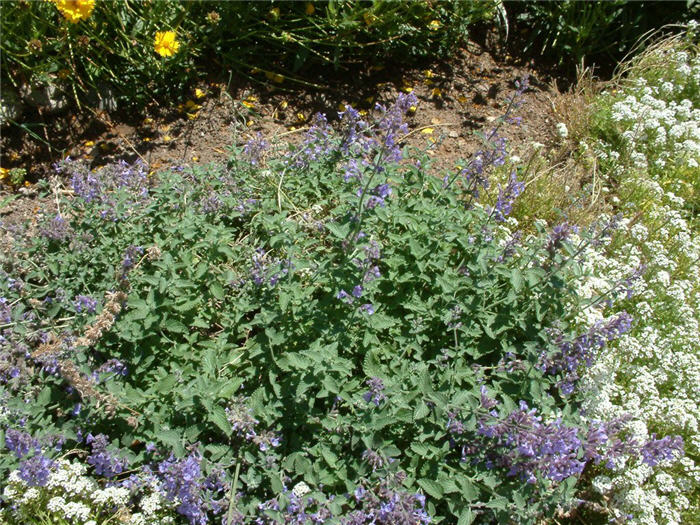| Botanical Name: Nepeta racemosa | |
| Common Name: Catmint |

-
Anatomy
-
Culture
-
Design
Plant Type
Ground cover, Perennial, Herb
Height Range
1-3'
Flower Color
Blue, Lavender
Flower Season
Spring
Leaf Color
Grey Green
Bark Color
n/a
Fruit Color
n/a
Fruit Season
n/a
Sun
Full
Water
Low, Medium
Growth Rate
Moderate
Soil Type
Sandy, Clay, Loam
Soil Condition
Average, Poor, Well-drained, Dry
Soil pH
Neutral
Adverse Factors
n/a
Design Styles
English Cottage, Mediterranean, Ranch, Spanish
Accenting Features
Fragrance, Showy Flowers
Seasonal Interest
Spring, Summer
Location Uses
Perennial Border, Parking Strip, Walkways
Special Uses
Mass Planting, Small Spaces
Attracts Wildlife
Hummingbirds
Information by: Stephanie Duer
Photographer:
Photographer:
-
Description
-
Notes
Nepeta is a fierce little perennial, growing in poor sooils and sunny, hot conditions with never a whimper. Though different nepeta vary is size and flower color, as a general rule, all are mounded and densely leaved, with heavily crinkled, aromatic, grey-green, slightly fuzzy foliage. Flowers are like all flowers in the mint family, though on nepeta the stems tend to be shorter and the flowers closer to the foliage. Usually blue to violet, blooming late spring and sometimes again in the fall. A great addition to a sunny garden or parkstrip. Many cultivars available.
Best grown in average, dry to medium moisture, well-drained soil in full sun to part shade. Thrives in dry soils in full sun, and is very drought tolerant. Shear flower spikes after initial flowering to promote continued bloom. Divide every few years if the center starts to thin. Cut back hard, a few inches above the crown, in late winter to early spring, before new growth emerges.